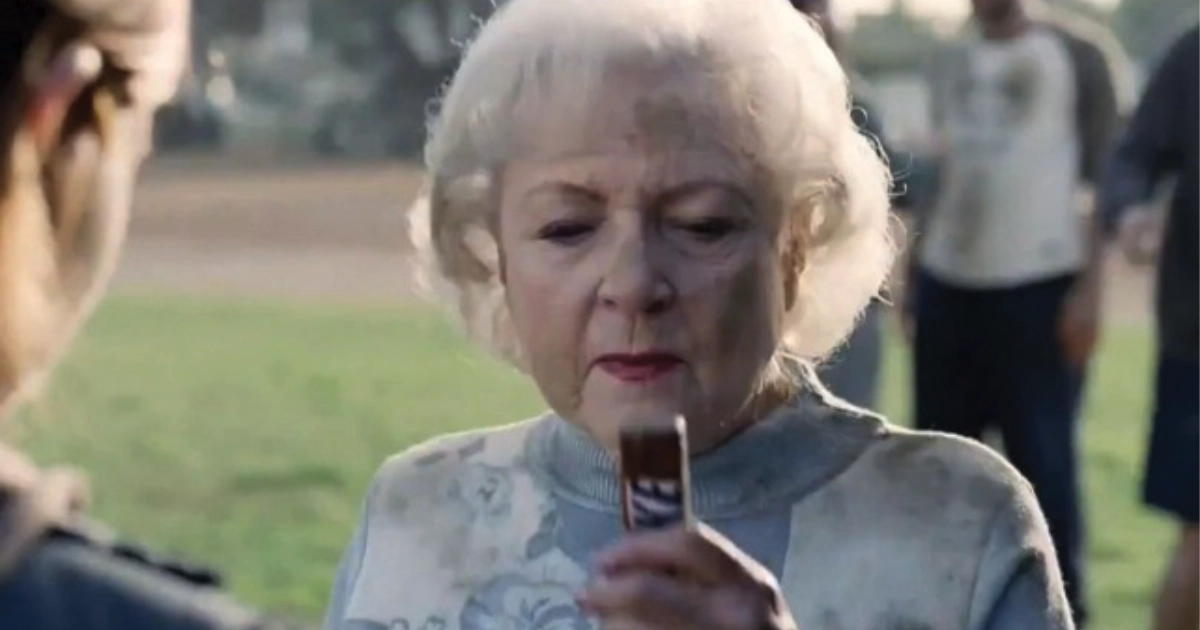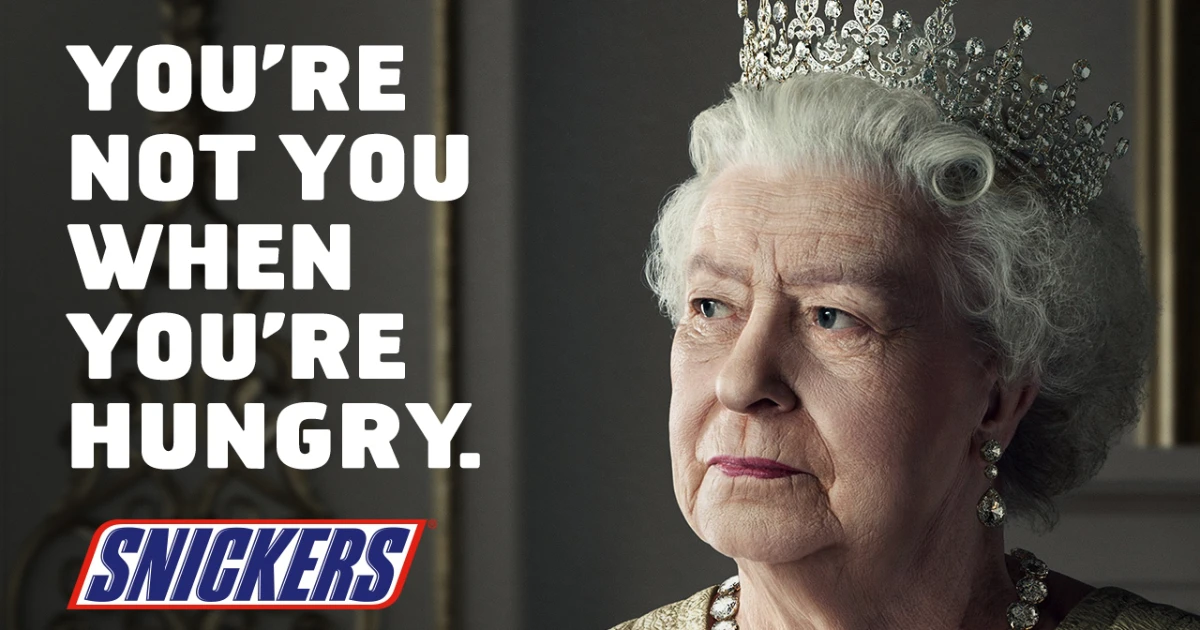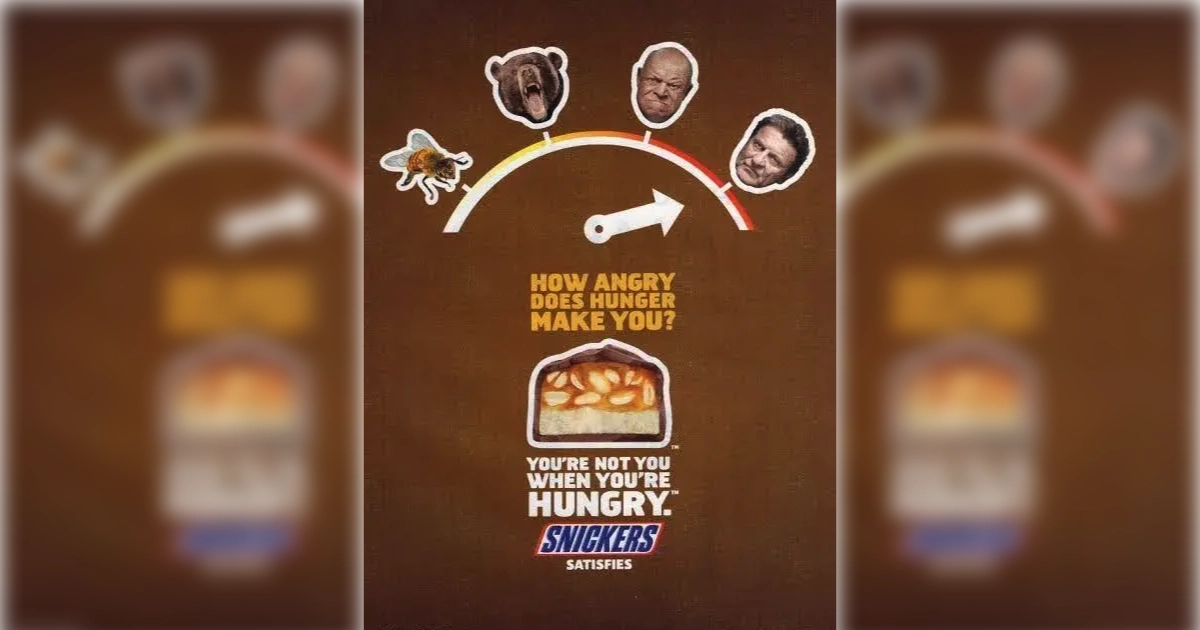.webp)
Mars, Inc.
Sometimes the most powerful marketing insights come from the simplest human truths. And sometimes, it takes an 88-year-old actress getting tackled in the mud to change everything.

It was 2007, and Snickers was in trouble. Sales were declining, market share was slipping, and younger consumers were experimenting with newer candy bars on the market.
For an 80-year-old, billion-dollar brand, this was a wake-up call. Mars Inc. had built Snickers into a global powerhouse since 1930, but now its crown jewel was losing its shine. The brand had become too narrow, too focused on young men, too predictable. Something had to change.

BBDO New York was determined to crack the code. James Miller, global head of strategy for Mars at BBDO, knew they needed more than just another clever ad. They needed a complete reimagining of what Snickers could represent.
They found that hunger doesn’t just make people physically uncomfortable—it changes who they are. When people get hungry, they get hangry.
The solution? A new marketing campaign called: You’re Not You When You’re Hungry.

February 7, 2010. Super Bowl XLIV. Millions of viewers are expecting the usual parade of beer commercials, car ads, and tech companies showing off. Instead, they got Betty White getting absolutely demolished on a football field.
The commercial was deceptively simple. A group of friends playing pickup football, with one player, named Mike, performing terribly. After getting tackled into a mud puddle, the player sits up, and it’s Betty White, covered in dirt and clearly annoyed. “Mike, you’re playing like Betty White out there,” says a friend. White’s response? “That’s not what your girlfriend said!”
A girlfriend hands “Mike” a Snickers. Suddenly, Betty White transforms back into a young man, ready to play. The tagline appears: “You’re Not You When You’re Hungry.”
The gamble paid off spectacularly. The ad generated 400 million unpaid media impressions worth $28.6 million—eleven times their initial investment.
More importantly, it worked. After just three months, Snickers had reversed its declining sales.

The success of the Betty White commercial proved the concept, but could it work worldwide? The answer came as markets across the globe began adopting the campaign, each adding its own cultural flavor while maintaining the core message.
Russia, Snickers’ second-biggest market, featured ballerina Anastasia Volochkova playing basketball with men. An unexpected site that generated 4x the views of Betty White. In China, where Snickers had struggled to make a cultural impact, the campaign generated over $1.1 million in earned media.
The UK brought in Joan Collins and Stephanie Beacham as locker room footballers. Australia featured beloved soap opera star Ray Meagher in his first-ever advertising role. Each market found its own way to show that hunger changes people.

In 2016, Clemenger BBDO Melbourne created the Hungerithm, an algorithm that monitored the mood of the internet in real-time.
The concept was brilliant in its simplicity. If people get angry when they’re hungry, and the internet reflects people’s moods, then internet anger could predict when people needed Snickers most. The Hungerithm analyzed 14,000 social media posts daily, understanding slang, sarcasm, and context to gauge online sentiment.
When the internet got angrier, Snickers got cheaper. Prices at 7-Eleven stores across Australia were updated over 140 times daily, dropping as low as 82% off the regular price.
The five-week campaign was a phenomenon. One in five people who visited the website redeemed a barcode. Sales jumped 67%.

Not every moment was perfect in the campaign. In August 2021, a Spanish commercial featuring influencer Aless Gibaja sparked controversy when it appeared to suggest that hunger could change someone’s sexual orientation. Spain’s Minister for Equality condemned it as homophobic, and Snickers quickly pulled the ad and issued an apology.
What made the “You’re Not You When You’re Hungry” campaign so revolutionary wasn’t its creativity, though it was undeniably creative. It wasn’t its celebrity casting, though that was inspired. It was its foundation in a simple, universal human truth.
Everyone gets hangry.